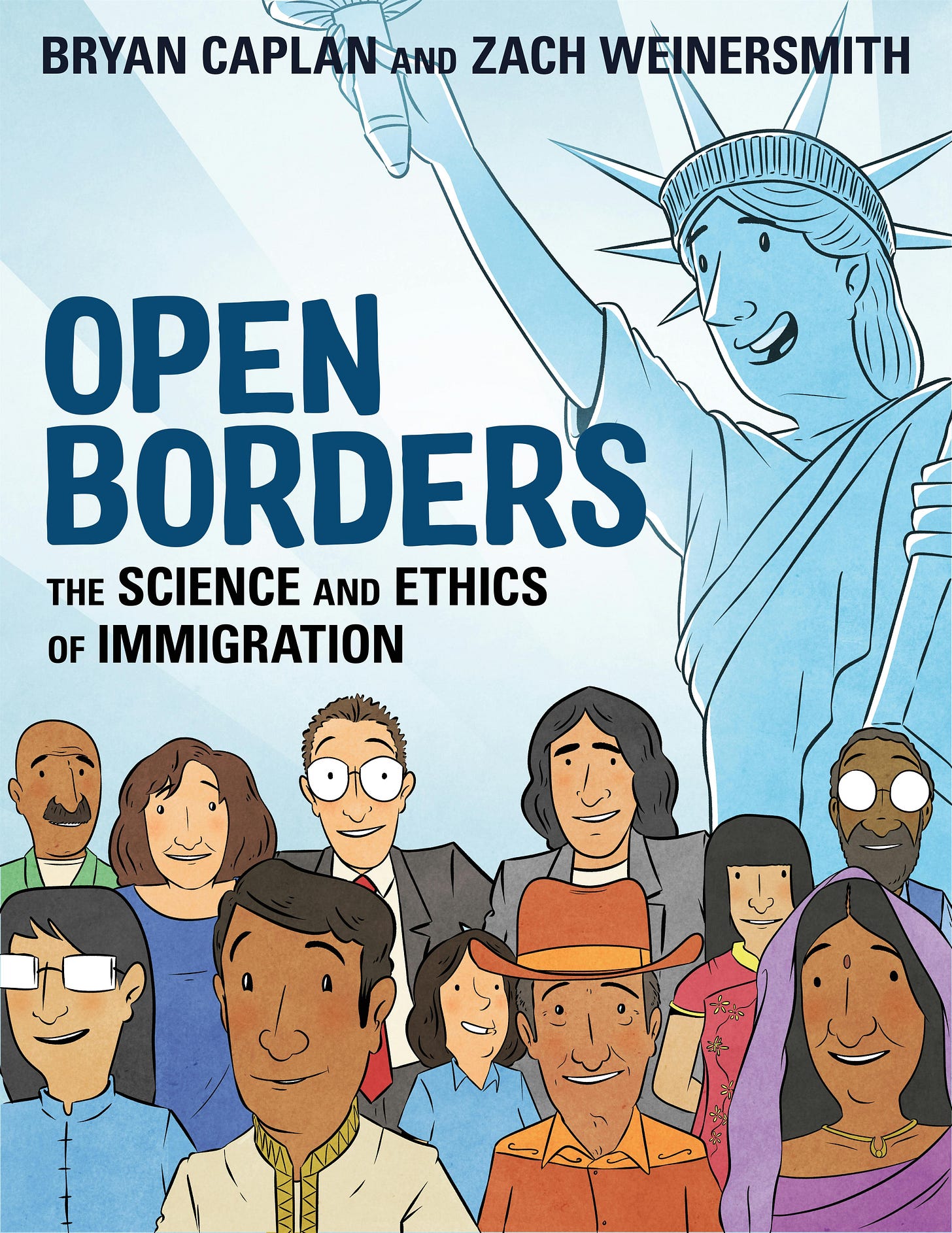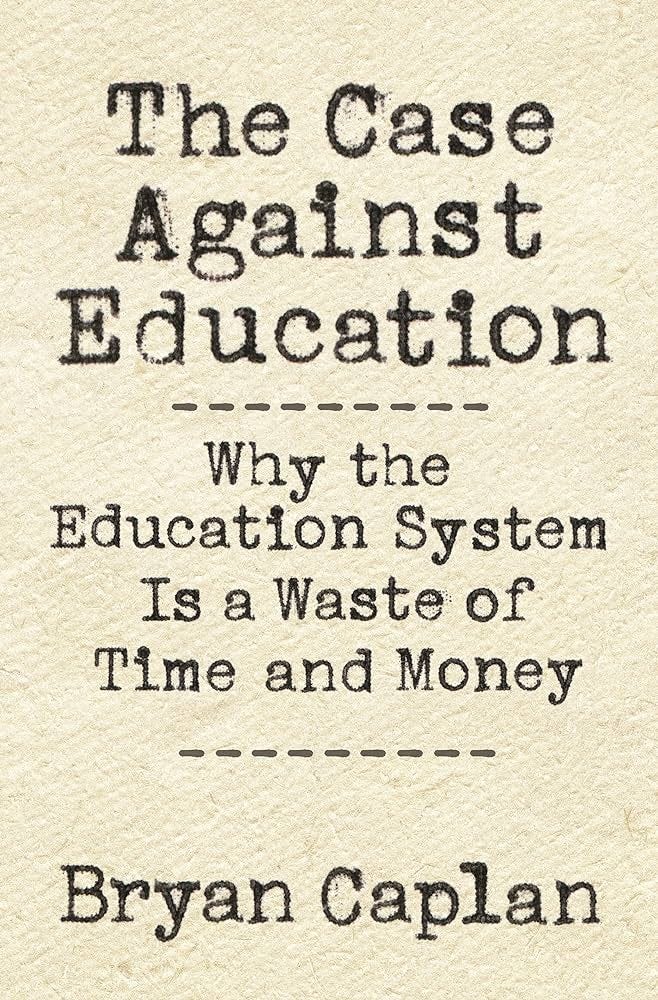
Trump's Backdoor to Open Borders
What would really happen if every college degree came with a green card
Donald Trump recently endorsed a glorious-on-net immigration proposal: giving a green card to every foreigner who graduates from a U.S. university. I was stunned when I read the fine print:
Let me just tell you that it's so sad when we lose people from Harvard, MIT, from the greater schools and lesser schools that are phenomenal schools also. [sic] And what I wanted to do and I would have done this, but then we had to solve the COVID problem because that came in and, you know, sort of dominated for a little while, as you perhaps know. But what I want to do and what I will do is you graduate from a college, I think you should get automatically, as part of your diploma, a green card to be able to stay in this country. And that includes junior colleges, too. Anybody graduates from a college, you go in there for two years or four years. If you graduate or you get a doctorate degree from a college, you should be able to stay in this country.
I doubt Trump’s serious. But if he managed to enact this proposal, the U.S. would move about halfway to my dream of open borders. To see why, remember the following facts:
For workers in the Third World, the gains of moving to the U.S. are immense.
Academic standards in America’s lowest-ranked schools and weakest departments are rock bottom.
Tuition at the weakest U.S. schools, though ordinarily much higher for foreign students, remains modest.
Lenders are happy to finance legal investments with enormous expected rates of return.
Imagine, then, that you’re a farmhand in the Third World. At home, you earn $3000 per year. In the U.S, you’d earn $33,000.
Under current U.S. immigration rules, legal immigration is practically impossible for you. So you either have to stay put or migrate illegally, with all of the associated smuggling fees, risks and horrors. Since smuggling is illegal by definition, borrowing against your massive earnings gain is hard. Once you cross the border, how can lenders know you’ll repay, instead if just disappearing into the underground economy of the world’s largest economy?
Under Trump’s proposal, in contrast, the would-be migrant merely has to get accepted by the cheapest community college in America. For international students, the total cost of a two-year degree from South Texas Community College is under $16k. Unless you’re from Mexico, that’s probably less than you’d pay human smugglers, with much lower risk. And even if you are from Mexico, it’s a legal transaction you can legally finance. Creditors should be eager to help, because once you graduate, the investment pays for itself in a little over six months!
Even if your English is very poor, finishing is pretty easy. Choose a bogus major, show up, do the extra credit, and max out pity points from your teachers. By the grace of grade inflation, you’ll get your degree. You’ll acquire few job skills, but that’s typical for college grads. Unlike your native-born classmates, however, you’ll gain permission to work in the U.S. for the rest of your life.
Yes, I know that community college completions rates are currently very low. But foreign students’ incentive to finish would be vastly higher than natives’. “Finish your degree, and you’ll earn 10% more after two years” is far less motivating than “Finish your degree, and you’ll earn 1000% more after two years.” Under Trump’s proposal, America’s colleges would become industrial-size immigrant-laundering centers.
Once you appreciate the incentives, the main limiting factor is simply the number of seats that colleges have to offer. Most colleges accept virtually anyone who pays tuition, but Trump’s proposal would massively increase the demand for U.S. colleges. Currently, a large minority of student visa applicants get denied because they fail to prove “non-immigrant intent.” Under Trump’s plan, however, this would be rather senseless, because welcoming foreign students to immigrate after graduation would be official policy.
In the short-run, granted, U.S. colleges would fill to the bursting point. To ration, they’d raise standards and raise prices. In the long-run, however, the vast majority of low-prestige schools would dramatically expand their class sizes to accommodate the massive applicant pool, bringing prices back down. With “online education,” the long-run might only take a few years. And finally, at long last, higher education would deliver sky-high net social benefits. Not by imparting piles of useful skills — dream on! — but by allowing the mostly low-skilled workers of the world to circumvent the world’s most wealth-destroying regulations. When The Case Against Education collides with Open Borders, Open Borders wins.
True, this immigrant-laundering scheme won’t launder absolutely everyone. It won’t let immigrants bring their minor children (at least until they convert their green cards into U.S. citizenship). It won’t work for immigrants who speak no English at all. It won’t work for immigrants too economically isolated to secure a loan destined to pay for itself fifty times over. But at least half of all would-be migrants could realistically follow my plan once markets adjust to meet exploding demand. Since over a billion want to come, the Trump plan would ultimately welcome hundreds of millions of new arrivals.
What about the conditions that Trump’s handlers hastily tacked on?
In response to media interest, the Trump campaign released a statement from press secretary Karoline Leavitt: “President Trump has outlined the most aggressive vetting process in U.S. history, to exclude all communists, radical Islamists, Hamas supporters, America haters and public charges. He believes, only after such vetting has taken place, we ought to keep the most skilled graduates who can make significant contributions to America. This would only apply to the most thoroughly vetted college graduates who would never undercut American wages or workers.”
Yawn. Unless the vetting process willfully negates the intent of the original proposal, this list of conditions scarcely matter. “Communists, radical Islamists, Hamas supporters, America haters and public charges” are a tiny share of the world’s population, so hundreds of millions of foreigners would still, after jumping through all the bureaucratic hoops, get a green light — and, in two short years, a green card.
Like Posner-Weyl’s “let every American sponsor an immigrant” plan, Trump’s proposal is great because he fails to understand that his reform is a backdoor to open borders. To get the results he wants — lots of high-skilled immigrants, few extra low-skilled immigrants — Trump would have to restrict his plan to, say, STEM majors with 3.5 GPAs from top-40 schools. Like my old debate partner Vivek Wadhwa, Trump would have to state:
To be clear, I am against the idea of simply stapling a green card to the diploma of every STEM graduate. This practice would bring in the chaff with the wheat and could encourage the development of “green card diploma mills,” where a student’s primary purpose would be to obtain a green card.
Why am I pointing out Trump’s mistake, instead of staying silent and hoping he’ll accidentally move halfway to open borders? Because I think the probability that he will follow through is very low, and the probability that my words will inadvertently stay his hand is astronomically low. The foes of immigration are too blinded by antipathy to carefully listen to me, so I can speak candidly with minimal moral risk.
In that spirit of candor: If what Trump has said about immigration in the past is remotely true, his proposal is folly. But if what Trump has said about immigration in the past is deeply false, his proposal is stellar. Not as stellar as simply saying “Yes”; making tens of millions of foreigners endure years of college so they can legally get blue-collar jobs is a sad joke. But the social benefits of immigration definitely dwarf the social costs of education. If I believed Trump was in earnest, I’d even consider voting for him.


















But surely after a couple of years at an American college, most of them would become communists.
(Ho Ho!)
Since Trump’s days as a candidate running to win the nomination for the Republican Party, Trump has said that the US needs greater legal immigration. Libertarians living in echo chambers have discerned that all moving about of people is ‘legal’.
Trump has advocated for a more robust approach to immigration to allow for many more people to enter into the process of immigrating.
There is a difference between being unchecked entrance into the US and then a process to weed out with background checks.
Again, in 2016, Trump talked about increasing legal immigration because ‘a growing economy will need more people’.